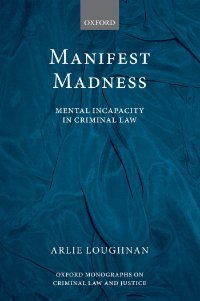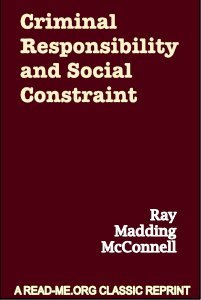By R. D. Mackay
Mental condition defences have been used in several high-profile and controversial criminal trials in recent years. indeed, mental abnormality is increasingly an important yet complex source of defence within the criminal trial process. The author offers a detailed critical analysis of those defences within the Criminal Law where the accused relies on some form of mental abnormality as a source of defence. Topics covered include: the defences of automatism, insanity, diminished responsibility, and infanticide; self-induced incapacity; and the doctrine of fault. It also includes a chapter on unfitness to plead, which although not a defence has been included because of its important relationship to mental disorder within the criminal process. Drawing upon a wide variety of legal, psychiatric, and philosophical sources, this is a timely contribution to a controversial and complex topic.
Oxford, UK; New York: Oxford University Press, 1996p. 278p.






